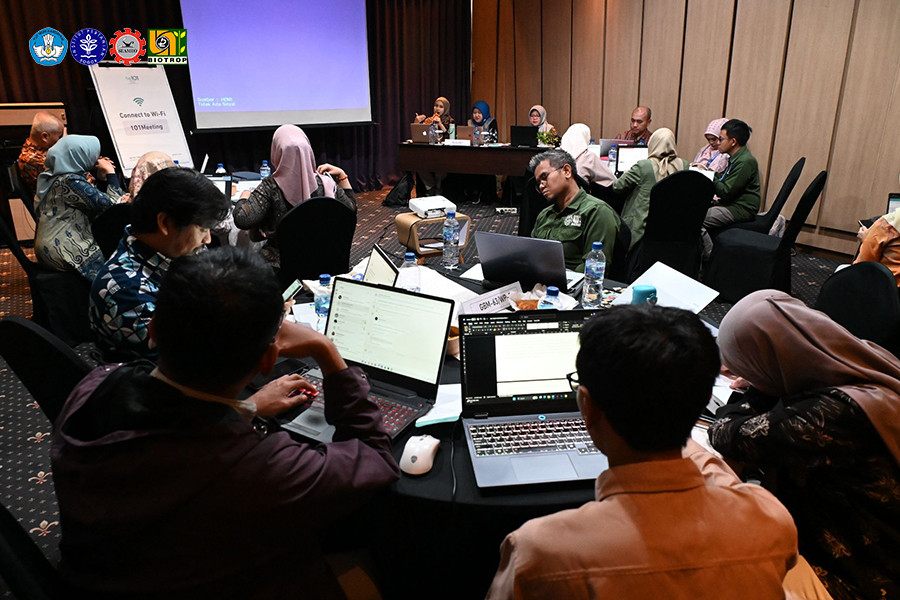SEAMEO BIOTROP held a workshop from 7–10 July 2025 in Bogor to prepare essential documents for the upcoming 63rd Governing Board Meeting (GBM), including the Fiscal Year 2024/2025 Annual Report and a set of 22 Working Papers (WPs) that reflect the Centre’s ongoing or continued and completed commitment to innovation, sustainability, and regional collaboration.
The four-day workshop served as a platform for aligning institutional goals and programmatic directions ahead of the GBM. Among the flagship initiatives discussed were Geopark Educational Model (GEM), the AI Technology Development Strategy for Biodiversity Conservation in Southeast Asia, SWARA Awards 2025, and the Southeast Asia Sustainable Environment Leader (SEASEL) 2025 program, along with upcoming research and capacity-building agendas.
The four-day workshop served as a platform for aligning institutional goals and programmatic directions ahead of the GBM. Among the flagship initiatives discussed were Geopark Educational Model (GEM), the AI Technology Development Strategy for Biodiversity Conservation in Southeast Asia, SWARA Awards 2025, and the Southeast Asia Sustainable Environment Leader (SEASEL) 2025 program, along with upcoming research and capacity-building agendas.
The event brought together 25 BIOTROP's management and staff across departments and welcomed strategic insights from Ms. Yunitasari and Ms. Irma from the Bureau of Planning and Cooperation, Ministry of Primary and Secondary Education of Indonesia. Their participation emphasized the importance of cross-sectoral synergy in strengthening BIOTROP's positioning within SEAMEO platforms.
Throughout the workshop, the technical team refined document structures and reporting frameworks. A notable feature was the strategic review of the Annual Report’s structure, where participants agreed to adopt the more effective version, emphasizing Leadership, Visibility, and Resource Base as core pillars. Suggestions included improving data accuracy, enriching content quality, and enhancing the financial accountability section using visual infographics.
Discussions also highlighted the growing relevance of regional collaboration. Speakers underscored that SEAMEO remains a vital platform for Southeast Asian cooperation in education, science, and culture. BIOTROP is positioned to act as a regional hub for tropical biology knowledge, particularly through active engagement in flagship programs and joint initiatives with other SEAMEO Centers and institutions.
The workshop concluded with departmental group work and presentation of draft documents, ensuring that each component—technical, strategic, and administrative—met the quality standards expected for submission to the SEAMEO Governing Board.
As BIOTROP advances toward GBM-63, the Centre reaffirms its dedication to sustainability, scientific leadership, and environmental education in the region. Together, we move forward for a more sustainable Southeast Asia.
 Friday, 11 July 2025 on 10:25am
Friday, 11 July 2025 on 10:25am